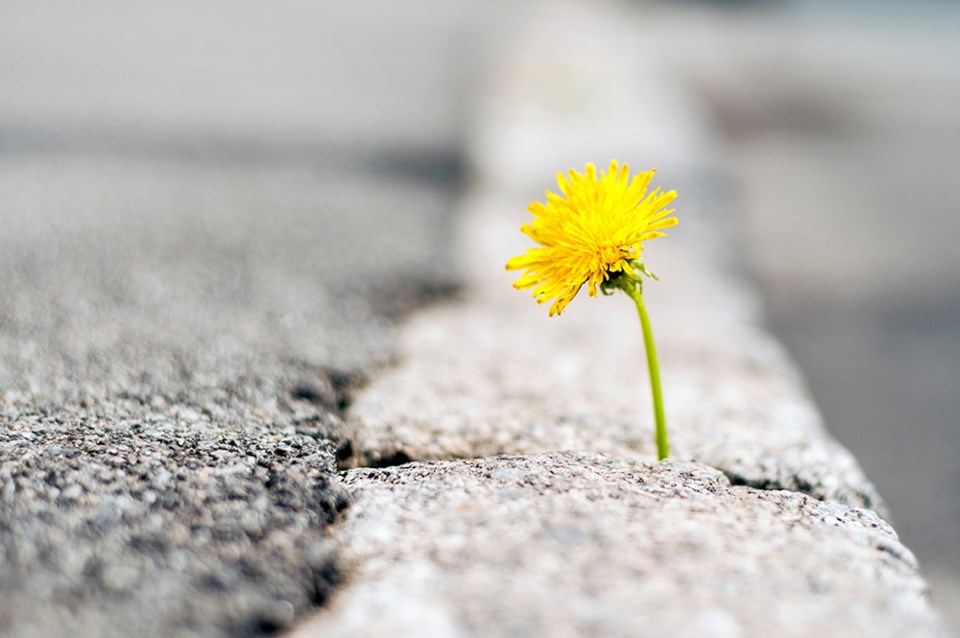Every few days, Pastor Glenn Davies goes on a walk — while keeping distance — with the father of Ava Grace Gnanaprakasam, the two-year-old who lost her life after being struck by a vehicle in February.
Davies said one question about the tragic accident still lingers — why?
"I don't know — I'm not God, I don't have the answers to why, but I do know we live in a broken world and death comes to all of us, and there are no guarantees," he said.
The Rock Church in Squamish has not been a stranger to hard times this year. With the death of Ava Grace, and others, and the onset of COVID-19, it can be hard not to have doubts about faith.
And it can be hard to rationalize your belief in God when faced with a combination of personal loss and economic hardship.
But that's where a sense of community can help.
"I can't answer their grief, or their worry and anxiety, but I can certainly be there for them and talk with them," said Davies. "And that's what we do. That's what everyone in our community's doing right now, right? Everyone is trying — I mean, Christian and non — are trying to be there for each other."
On the eve of Easter weekend, The Chief sought advice from people of faith throughout town about how to best cope with the pandemic and how their religious communities have adapted in these trying times.
Many advocated for a sense of compassion and some noted that attendance numbers — albeit via online platforms — have risen.
Here are some of their stories.
The Rock Church
"Lord, last night I didn't die. Today I might die. All of my tomorrows are in your hands."
That's the prayer Davies finished with during one of the Rock's recent services.
Davies said a lecturer named Joshua Chestnut gave that quote to a group of Christian philosophy students just before the pandemic hit the United States.
Chestnut's wife was hospitalized with a very serious case of the flu about a year ago. It was unrelated to COVID-19, but was bad enough that she feared for her life.
It was then that the prayer came to her.
Davies said it underscores that in the Christian faith, death is not the end but rather the beginning.
"This is not the end — this is the beginning of the best times of the rest of our lives. There's hope in that, and some people might call it a false hope — OK fine," he said.
"But that's what I believe, and that's what I share with people."
Concerning the congregation, he said that they were well-positioned to switch up their worship services.
The Rock has already been streaming their ceremonies for some time, as it's been a way for them to attract new people to the church who might otherwise be a bit shy to initially join in-person.
As a result, hosting worship services on Facebook Live and archiving them on YouTube is already a well-practiced skill.
Members have also been co-ordinating food delivery and pickup services for the vulnerable.
"Church has left the building — which is a good thing, because I always teach people that what Jesus had in mind was not a building," said Davies.
"It's actually us."
The River Church
For Pastor Darcy Reimer, of The River Church, one section in the bible seems to be particularly suited to the current state of affairs.
It's the Book of Lamentations.
"The whole book is the permission to lament. To get angry. To pound the table. To say, 'What are we going to do for money, what are we going to do for work?'" said Reimer.
"We have a God who suffered and died... he's not standing far off at a distance. He's not aloof. He's with us in the pain. And because of that, we're given the freedom to lament, [be sorrowful] and cry. Sometimes we need that emotional release."
At a time when many people can be experiencing negative emotions, it's important to acknowledge those feelings and not try to judge or suppress them, he said.
It's also a time to acknowledge that we can't control everything, he said. Anxiety and fear in large part result from the need to control your surroundings, which isn't possible in a time like this.
Reimer said his church has moved to online services and attendance has increased during this time.
The Sikh Community
For those of the local Sikh community, these times have prompted a message of compassion and understanding.
Avtar Gidda of the Squamish Sikh Society said that such values are important in these circumstances.
"Our scriptures says our advice from the Lord and...from the gurus are to be kind, be compassionate, and to share your ideas, share your feelings, share in the time of difficulty," said Gidda.
This is not the time for rumours, he said. People should only "talk reality."
He said it's best for everyone to follow the advice of public health authorities and maintain social distancing.
"Please be compassionate, be co-operative, obey the laws and obey the orders..[of] government," said Gidda. "Be faithful to the Canadian people, be faithful to the system, be faithful to yourself."
Since the pandemic, the temple has been shut down to regular worship services.
People have instead been asked to pray at home. A book-lending service, however, is available for those who need access to sacred texts.
He said the Sikh community has also been looking after its vulnerable, with people stepping up to drop off or pick-up food for those in need. The temple has also given out phone numbers so that there are people on-call if anyone needs help.
The Baha'i community
For the Baha'i, the message is all about unity, says Geraldine Guilfoyle, a local practitioner of the faith.
"A central tenant within the Baha'i faith is the oneness of humanity," said Guilfoyle.
There's a quote from the faith that she says especially embodies this well: "Regard ye not one another as strangers. Ye are the fruits of one tree, and the leaves of one branch. Deal ye one with another with the utmost love and harmony, with friendliness and fellowship."
This is a time when we need to look at the world as one human family, said Guilfoyle.
Another teaching that comes to mind in the current situation, she said, is the importance of a balance between science and religion.
This is especially so given that it's crucial to abide by the instructions of public health officials.
Guilfoyle said that one important quote from the faith says: "Religion and science are the two wings upon which man's intelligence can soar into the heights, with which the human soul can progress. It is not possible to fly with one wing alone."
These times have also provided people with an opportunity to reconnect with their own faith.
The Baha'i believe that all faiths stem from the same source, she said, so people can find solace and guidance in their respective religions.
At the same time, it's important to "maintain the capacity for joy," she said.
To adapt, the Baha'i community has been holding its 19 Day Feasts, study circles and devotionals online.
Children's classes are now being done in the homes of their parents.
There's also a group WhatsApp chat for anyone in need of quick support, she said.
St. Joseph's Roman Catholic Church
Now is the time to check on each other, said Father Rey Usman, of St. Joseph's Roman Catholic Church.
"I encourage our parishioners...to reach out to fellow parishioners, especially those who are elderly and cannot go out without assistance," said Usman.
Worship services have moved online to Facebook Live or the parish website, he said.
Speaking shortly before Good Friday, Usman said that the readings in the bible at this time of year are relevant to the current pandemic situation.
"The readings point to this tragic event," he said. "Which is part of God's plan of salvation. Jesus undergoes this passion, this death, in order to pave for us the way to salvation when he resurrected. What we're experiencing now is part of that life that we share with Christ. We undergo suffering in order to rise again, in order to be alive again. And we just have to be patient, because this doesn't have a specific timeline."
Squamish United Church
Spring can show us a thing or two about persevering through struggle, said Rev. Karen Millard of Squamish United.
"At the core of our humanity, at the core of the Earth is the creation of love and the creation of hope, and right now we're in the season of spring, and that season for me is always a season that shows me how new life can come out of the darkest hardest ground, the deepest soil," Millard said.
The United Church has adapted to life in the pandemic.
Like many, the church has moved online. Millard records a weekly reflection that she puts up on Vimeo, and distributes via Facebook and email.
She also uses Zoom for collective prayer, meditation, and even coffee get-togethers.
Millard said it's a challenge to not be able to come together in person during the Easter holiday, but she's finding other ways to mark the occasion.
She's getting people to send in pictures that encapsulate signs of hope, spring and love.
Pictures of flowers growing through the cracks are one example, she said. Millard will also be busy covering the church window with heart-shaped letters bearing written prayers submitted from members.
She added the church has also started a compassion fund, which helps out the vulnerable in this time of need. For example, so far it's been used to provide baby formula and phone cards for those in financial trouble.
"Church isn't about a building," she said. "It never was. It's about community."
*Do you belong to a faith group not represented here? Tell us how it is helping you get through the pandemic. Write to editor@squamishchief.com. We hope to publish more messages in an upcoming Squamish Chief.





